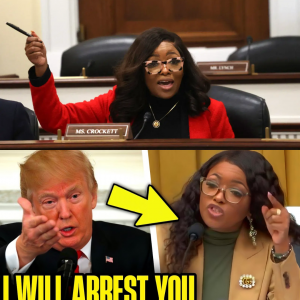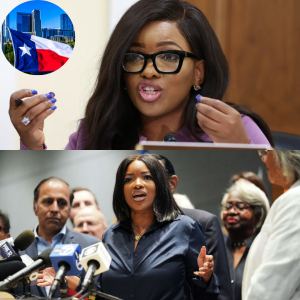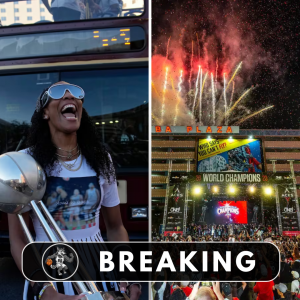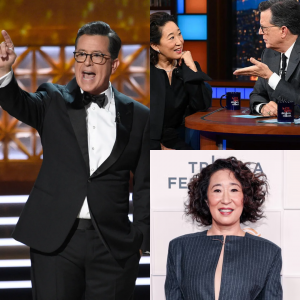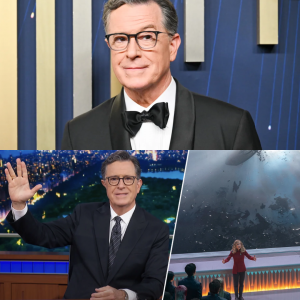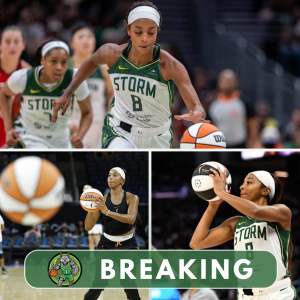Jon Batiste is the definitive musical Renaissance man.
From his breakout days as the bandleader on “The Late Show with Stephen Colbert” to an Oscar win in 2021 for Disney’s “Soul” to earning 11 Grammy nominations in 2022 spanning jazz, classical, roots and R&B categories (he won five, including album of the year for “We Are”) to singing the national anthem at the Super Bowl in his New Orleans hometown this year, Batiste’s musical diversity is unrivaled.
His recently released ninth studio album, “Big Money,” finds Batiste, 38, digging into the heritage of roots music and joined by guests Randy Newman, Andra Day and No ID.

The multi-instrumentalist is also touring the country through October, deliberately slotting in smaller markets such as St. Augustine, Florida and Akron, Ohio, alongside tour stop mainstays including Detroit, Philadelphia and Washington D.C.
Calling recently during a two-day run in Madison, Wisconsin, Batiste is delighted to discuss not only his new music, but his love of Joni Mitchell, his collaboration with Beyoncé and how the loss of late-night shows hurts musicians.
Question: Let’s start with something a little fun. I know Ray Charles is one of your heroes, but who else ranks among your most influential artists?
Batiste: Joni Mitchell is a revelation. Nina Simone feels like family. I’m influenced a lot when I think of avant garde contemporary classical, like Caroline Shaw and my mentors Pierre Jordan and (cousin) Alvin Batiste. With contemporary artists, my friends Jacob Collier and SZA, she’s a modern-day voice of the generation, like Billie (Eilish) and Taylor (Swift).
Have you been to the Joni Jams at Joni Mitchell’s house?
I got a chance to really get to know her over the last year or so. We did some performing when she stepped up at the Hollywood Bowl and I did do some Joni Jams. She stopped doing them, but I was there for her birthday and we wound up doing a jam of our own. She loves movie songs. Her favorite is “Unchained Melody” from “Ghost,” but the idea of how she approaches a song, we all can learn.
Are there others you still learn from?
Only a few people in that pantheon are around and I’ve made it my duty to be close to them. Stevie Wonder, Randy Newman and (Bob) Dylan. Talk about getting to know folks – I cold-called Randy. I hadn’t seen him in a while and I decided to call him and that led to the recording (of “Lonely Avenue”). My great joy in reaching this level is I can call my heroes and they pick up.
You have a banner up at your shows that calls the night a “circus of love.” How did you come up with that term?
The way I mean circus of love is the way the tent revivals would come to different places or the circus would come to town, and as a band we’re showing up and creating our own tent in the venue. I always thought, what do I want it to represent when people step under our tent? And it’s a circus of love.
Are you feeling that love from the crowd?
What I love about this tour and my audience is that the approach feels so needed right now in our country. We’re going to cities that aren’t major markets, places that aren’t as politicized as L.A. or New York. You’ll find all of these people different in ideology and they’ll feel this energy that we’re putting out there. It is very unexpected and it hits people in a good way.
You have Andra with you at some shows and she’s a great duet partner on“Lean on My Love.” What is it about your partnership that works so well?
It’s just real. You know when people are easy with each other? It sometimes translates into the music and that’s the case with us. She’s a phenomenal singer and there’s a great tradition of the male/female duet in music. Some of the most intentional duets of the 20th century – Louis Armstrong and Billie Holiday, Dolly (Parton) and Kenny (Rogers), Tammi (Terrell) and Marvin (Gaye) – how those songs reverberate is a tradition. Once you find the right partner who resonates at the frequency with you, you feel it.

How did you shift from classical on your last album (“Beethoven’s Blues”) to the Americana/roots music on “Big Money”?
It was honoring the way music was made at the beginning of recorded music. The essence of a performance was captured by people who weren’t professional musicians. These weren’t people who studied in a conservatory. They learned it from the porch or the barnyard, coal miners and sharecroppers, people who worked everyday jobs and played music as a way to congregate and release tension and document their experiences. I just thought about for “Big Money,” how do I capture the essence of the moment?
“Do it All Again” and “Lean on My Love” are such beautiful love songs. Were they inspired by your wife Suleika Jaouad?
If you listen to those songs you can almost imagine me singing them to her. It’s such a gift to have each other and there’s been so many things that inspire my work. But I’m certainly inspired by our love.
How is she doing (Jaouad is in remission from leukemia)?
She’s doing well in that she’s doing treatment indefinitely. But she’s very much 100% living her life. You wouldn’t even know what she was going through. The Bible says life and death is in the power of the tongue and we speak life in this house.
You also have one of the most striking songs on “Cowboy Carter” that opened Beyoncé’s live shows. What did you think hearing “American Requiem” in that setting?
That was an amazing moment to hear it open the show. She is someone who is really underrated even still for what she’s been able to do and I was really glad that she decided to open the show with that song. It inspired the way we’re doing the song on our tour. The song started with me playing the guitar and singing a capella, and that’s how I perform it now in my show. It’s almost like a meditation that happens as we go into my song “Freedom.” Seeing how she did it in her show inspired me to carry the message forward in our show.

You were Stephen Colbert’s band leader on “The Late Show” for seven years and the late-night genre really gave you and your music such exposure.
I was coming into the show having graduated from college three years prior and I was not looking to do a show like that. But it really was a life-changing experience to be invited into a position with a band working five days a week for 202 shows a year. It really becomes quite an education. As my role in the show evolved and Stephen and I became closer and closer off camera, we would have episodes where he would check in with me and I wouldn’t even play music and we’d talk. When I left (in 2022), it really did feel like the end of a chapter in my life.
How do you feel about the loss of that late-night platform for musicians?
The band is the spiritual power source for these shows. When you’re at home, the tone and the spirit that comes through your TV screen is chiefly created by the band in that room. It is definitely a sad thing to see leave the circulation of culture.

